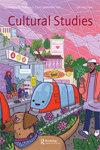Aqua/geopolitical conjuncture and disjuncture: invasion, resources, and mining the deep dark sea
IF 1.2
3区 社会学
Q1 ANTHROPOLOGY
引用次数: 0
Abstract
ABSTRACT In this article, I address the omission of the ocean or the aqua in geo-political scholarship and public debate. My argument is motivated by the public descriptions of Putin’s invasion and war in Ukraine and the lack of attention to the oceanic geopolitics of deep sea mining. Descriptions of Putin’s attack reproduce old terrestrial arguments about the role of geography in figuring national identity and destiny. On the contrary, I posit that the war in Ukraine is focused on capturing control of the oceanic circulation of resources. Deep sea mining is framed as a green response to defossilization of energy and the economy, and centres on mining minerals on the sea floor for the ‘EV revolution’. I argue that these two events or crises can be understood through a conjunctural framework. However, this involves reworking cultural studies’ usual understanding of conjunctural analysis. Following the work of Ben Highmore and others, this means deepening the geopolitical, historical and material scales involved in the disjunctures that hold together simultaneously yet separately the invasion of Ukraine and the legal framing of mining the deep seas through the UN Convention of the Law of the Seas (UNCLOS) and the International Seabed Authority (ISA). Such an analysis involves narrating the clashing of what Timothy Clarke calls the derangement of temporal scales of the Anthropocene if we are to figure ‘what happening now’.水/地缘政治危机与危机:入侵、资源和深海采矿
在这篇文章中,我讨论了在地缘政治学术和公共辩论中海洋或水的遗漏。我的论点是出于对普京入侵乌克兰和乌克兰战争的公开描述,以及对深海采矿的海洋地缘政治缺乏关注。对普京袭击的描述再现了关于地理在决定国家身份和命运方面的作用的古老的地球论点。相反,我认为乌克兰战争的重点是夺取对海洋资源流通的控制。深海采矿被认为是对能源和经济去化石化的绿色回应,其核心是为“电动汽车革命”在海底开采矿物。我认为,这两个事件或危机可以通过一个合意的框架来理解。然而,这涉及到对文化研究通常对语境分析的理解的改造。根据本·海莫尔(Ben Highmore)等人的研究,这意味着深化地缘政治、历史和物质层面的研究,这些研究涉及到乌克兰入侵与通过《联合国海洋法公约》(UNCLOS)和国际海底管理局(ISA)开采深海的法律框架同时存在但又分别存在的分歧。如果我们想弄清楚“现在发生了什么”,这样的分析需要叙述蒂莫西·克拉克所说的人类世时间尺度的混乱。
本文章由计算机程序翻译,如有差异,请以英文原文为准。
求助全文
约1分钟内获得全文
求助全文
来源期刊

Cultural Studies
Multiple-
CiteScore
3.50
自引率
6.70%
发文量
0
期刊介绍:
Cultural Studies is an international journal which explores the relation between cultural practices, everyday life, material, economic, political, geographical and historical contexts. It fosters more open analytic, critical and political conversations by encouraging people to push the dialogue into fresh, uncharted territory. It also aims to intervene in the processes by which the existing techniques, institutions and structures of power are reproduced, resisted and transformed. Cultural Studies understands the term "culture" inclusively rather than exclusively, and publishes essays which encourage significant intellectual and political experimentation, intervention and dialogue.
 求助内容:
求助内容: 应助结果提醒方式:
应助结果提醒方式:


